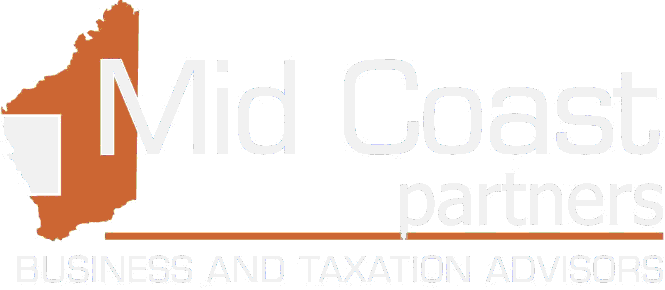Newsletter
Inside:
- The accelerated tax rate reduction for small business
- The new rules for gift cards
- Travelling to and from your investment property
- How tampons became a national debate
Accelerated tax rate reduction for small business
Small business is still a vote winner with the Government and Opposition teaming up to accelerate tax cuts for the sector by 5 years impacting on an estimated 3.3 million businesses.
Parliament recently passed legislation to accelerate the corporate tax rate reduction for corporate tax entities that are base rate entities (BREs). Under the new rules:
- A 26% rate will apply to BREs for the year ending 30 June 2021, and
- A 25% rate will apply to BREs from 1 July 2021
| Year | Aggregated annual turnover threshold | Eligible companies* | Entities under the threshold | Other corporate tax entities |
| 2015-16 | $2m | SBE ($2m threshold) | 28.5% | 30% |
| 2016-17 | $10m | SBE ($10m threshold) | 27.5% | 30% |
| 2017-18 | $25m | BRE | 27.5% | 30% |
| 2018-19 to 2019-20 | $50m | BRE | 27.5% | 30% |
| 2020-21 | $50m | BRE | 26% | 30% |
| 2021-22 | $50m | BRE | 25% | 30% |
*Small Business Entity (SBE), Base Rate Entity (BRE)
The amending legislation also increased the small business income tax offset rate to 13% of an eligible individual’s basic income tax liability that relates to their total net small business income for the 2020-21 income year and 16% for the 2021-22 income year onwards.
The small business income tax offset continues to be capped at $1,000 per individual per year. This means that if your business operates as a sole trader for example, the amount of tax you are likely to pay will be reduced from 2020-21 but only up to the $1,000 cap.
What is a base rate entity?
Between 1 July 2015 and 30 June 2017, we used the concept of a small business entity (SBE) to work out what tax rate applied to a company. The concept of an SBE has now been replaced with a base rate entity (BRE) for company tax rate purposes. However, the concept of what a BRE actually is has changed over time to extend the lower tax rate to more companies and to restrict what entities can access the lower tax rate.
For the 2017-18 income year, a BRE was a company that had an aggregated turnover at the end of the income year of less than $25 million and no more than 80% of its income was passive in nature. Passive income includes some dividends, franking credits, non-share dividends, interest income (there are some exclusions), royalties, rent, net capital gains and gains on securities, and some trust and partnership distributions. If the company receiving the dividend holds a voting interest of at least 10% in the company paying the dividend then the dividend is not treated as passive income for the purpose of these rules.
For 2018-19, the threshold to be a BRE increased to companies with an aggregated turnover up to $50 million.
Where income is derived through a chain of trusts or partnerships, things get slightly more complicated as the law requires the tests to be applied at each level of the chain. Special rules also exist to prevent partnerships and trusts from reducing their net income by increasing expenses. Indirect expenses such as overheads are excluded from the calculation of net income.
The problem for franking credits
The company tax rate changes have also impacted on the maximum franking credit rules.
In 2015-16, the first year small business entities could access a reduced company tax rate of 28.5%, the maximum franking credit rate for franked dividends remained at 30%. However, from the 2016-17 income year onwards the maximum franking credit rate needs to be determined on a year-by-year basis. In many cases this means that if the company’s tax rate is 27.5% then the maximum franking rate will also be 27.5%. However, this will not always be the case and you can have situations where the corporate tax rate and maximum franking rate are different in a particular year.
In some instances, a company will pay tax at 30% but when it pays out the profits as a franked dividend, the maximum franking rate will be 27.5%. The company may end up with surplus franking credits trapped in its franking account. This can lead to double taxation as shareholders won’t necessarily receive full credit for the tax already paid on those profits by the company.
This problem will potentially become worse as the company tax rate becomes lower as some companies will have paid tax on profits at 30%, but will only be able to apply a 25% franking rate to dividends paid out in future years.
It will be important to look closely at this issue each financial year as there are some strategies that can potentially be applied to prevent franking credits being trapped in the company and minimise the incidence of double taxation.
The new rules for gift cards – what you need to know
In Australia, around 34 million gift cards are sold each year with an estimated value of $2.5 billion. On average, an estimated $70 million is lost because of expiry dates.
Until recently, there was no national regulation for the minimum length of time a gift card should last. In late 2017, New South Wales introduced laws* requiring a minimum three year expiry period for gift cards sold in that state and South Australia was in the process of enacting laws, but no uniform standard applied across Australia.
Applying from 1 November 2019, new laws are in effect that introduce a regime for the regulation of gift cards including:
- A minimum 3 year expiry period
- Bolstering disclosure requirements, and
- Banning post-supply fees.
What businesses need to do:
From 1 November 2019, businesses should ensure:
- All gift cards have a minimum three year expiry period. Any existing gift card stock should be run down and production reviewed to ensure that once the new regime comes into effect, only compliant gift cards are issued.
- Ensure disclosure requirements are met. The expiry date or the date the card was supplied and a statement about the period of validity must be set out prominently on the gift card itself. For example, if the supply date was December 2019, “Supply date: December 2019. This card will expire in 3 years,” or “Valid for 3 years from 12/19”. It is assumed that the card expires on the last day of the month where only the month and year are displayed. If the gift card does not expire, the card will need to clarify this by stating words to the effect of, “never expires”.
- Post-supply fees are not charged. A post-supply fee is a fee that is charged reducing the value of the gift card such as administration fees for using a gift card. Post-supply fees exclude the fees that are normally charged regardless of how someone pays for a product or service. For example, booking fees, a fee to reissue a lost or damaged card, and payment surcharges.
A number of larger businesses have adopted a 3 year expiry period following the introduction of NSW laws. These include David Jones, Myers, Westfield, Rebel Sport, Coles, and Dymocks. Other retailers have no expiry dates including iTunes, JB Hi-Fi, EB Games, Woolworths and Bunnings. Generous expire periods are a point of difference when consumers are working out which retailers gift card to purchase.
What happens if a business ignores the new rules?
Once the new rules come into effect, if a gift card is supplied with less than a three year expiry period, the disclosure requirements are not met, or post-supply fees are charged, a penalty may be imposed of up to $30,000 for a body corporate and $6,000 for persons other than a body corporate. In addition, the ACCC has the ability to impose infringement notices. Each infringement notice is 55 units (currently $11,500) for a body corporate and 11 units (currently $2,420) for persons other than a body corporate.
What happens if a business becomes insolvent or is sold?
The consumer’s rights do not change if the business becomes insolvent or bankrupt. The consumer becomes an unsecured creditor of the business.
If a business changes owners, the new owner must honour existing gift cards and vouchers if the business was:
- sold as a ‘going concern’. That is, the assets and liabilities of the business were sold by the previous owner to the new owner.
- owned by a company rather than an individual, and the new owner purchased the shares in the company.
*Amendments to the NSW Fair Trading Act 1987 require that most gift cards and vouchers sold from 31 March 2018 have a 3 year expiry period. In addition, no post-purchase fees can apply to redeem the voucher (including activation fees, account keeping fees, balance enquiry fees, telephone enquiry fees and fees applied when a card is inactive or not being used). See Fair Trading for more details.
Travelling to and from your investment property
From 1 July 2017, new rules came into effect that prevent taxpayers claiming a deduction for expenses they incur travelling to and from their residential investment property.

The Government restricted travel deductions to curb “widespread abuse around excessive travel expense claims relating to residential investment properties….This will stop residential property investors from using the tax system to pay for their holidays by claiming costs as a rental expense.”
The new rules prevent a deduction from being claimed for a loss or outgoing if it relates to travel and the expense is incurred in gaining or producing assessable income from the use of residential premises as residential accommodation.
The purpose of the travel is not really relevant under these rules. They simply prevent a deduction from being claimed if the travel is undertaken in connection with a residential rental property, which could include travel to inspect the property, undertake repairs, collect rent or meet with real estate agents.
The restriction applies to transport costs (regardless of the mode of transport used), meals and accommodation expenses incurred in relation to a residential rental property.
There are some exceptions to these changes.
Firstly, the rules will not prevent a deduction from being claimed if the expense is necessarily incurred in carrying on a business. This means that if you carry on a business of renting properties, you can continue claiming travel deductions if you carry on a business of property investing or a business of providing retirement living, aged care, student accommodation or property management services.
The distinction between someone merely investing in property and someone carrying on a business of property investing is a matter of fact. The ATO will look at the characteristics of the business including:
- the total number of residential properties that are rented out
- the average number of hours per week you spend actively engaged in managing the rental properties
- the skill and expertise exercised in undertaking these activities, and
- whether professional records are kept and maintained in a business-like manner.
The fact that a taxpayer has multiple properties does not necessarily mean that they are in business. It will really depend on whether you can prove that you actively manage the properties like a business. In a recent case, the Administrative Appeals Tribunal found that a taxpayer with 9 rental properties was considered to be carrying on a business of property rental largely because the taxpayer actively supervised the real estate agent employed and managed issues associated with the properties (thus having a discernible pattern of trading to their activities), the capital employed was significant and they had conducted property rental activities for a number of years.
Also, the rules do not apply to certain entities including:
- Companies;
- Superannuation funds, except SMSFs;
- Managed investment trusts;
- Public unit trusts;
- Unit trusts or partnerships, but only if all unit holders or partners fall within one of the categories above.
In addition to the rules that prevent a deduction from being claimed, the changes also ensure that these travel expenses cannot be included in the cost base or reduced cost base of a property. This means that they cannot be used to reduce a capital gain or increase a capital loss made on sale of the property.
How tampons became a political debate
GST is applied to tampons but not to incontinence pads. Viagra is exempt from GST but nipple shields for breast feeding mothers are not. Breakfast cereals are GST-free but breakfast bars and drinks are taxable. We explore the political football of GST exemptions.
Australia’s goods and services tax (GST) is messy. To ensure that the GST passed Parliament, a deal was brokered to exclude certain items including fresh food, education, health and child care. The reason for the carve out was to ensure that low income earners are not adversely affected by the GST on the necessities of life. Our New Zealand neighbours however, took the simpler approach and apply GST to most things, leaving the social security system to target the needs of low-income earners.
The problem with the carve out is that the boundaries between different products and services are not clear-cut or intuitive, creating anomalies between the tax treatment of different items. Feminine hygiene products are one of those anomalies. For example, feminine hygiene products are not considered a health product but pads for incontinence are as they are required for a medical condition. Toilet paper and nappies, arguably also essentials of life, are also taxed.
Treasury has undertaken consultation to define what a feminine hygiene product is to remove it from the GST. The States and Territories have agreed to remove the tax. The Federal Government has stated that it intends to remove the tax on tampons from 1 January 2019 but as yet, no legislation has been introduced into Parliament to effect the change.
Quote of the month
“Learn from the mistakes of others. You can’t live long enough to make them all yourself.”
– Eleanor Roosevelt
This article is for use of a general nature only and is not intended to be relied upon as, nor be substitute for, specific professional advice. No responsibility for loss occasioned to any persons or organisations acting on or refraining from action as a result of any information or material on our website will be accepted. Please ensure you contact us to discuss your particular circumstances and how the information provided applies to your situation.
